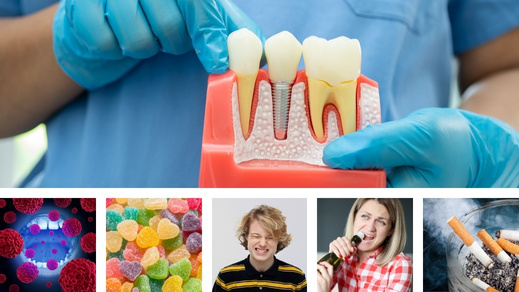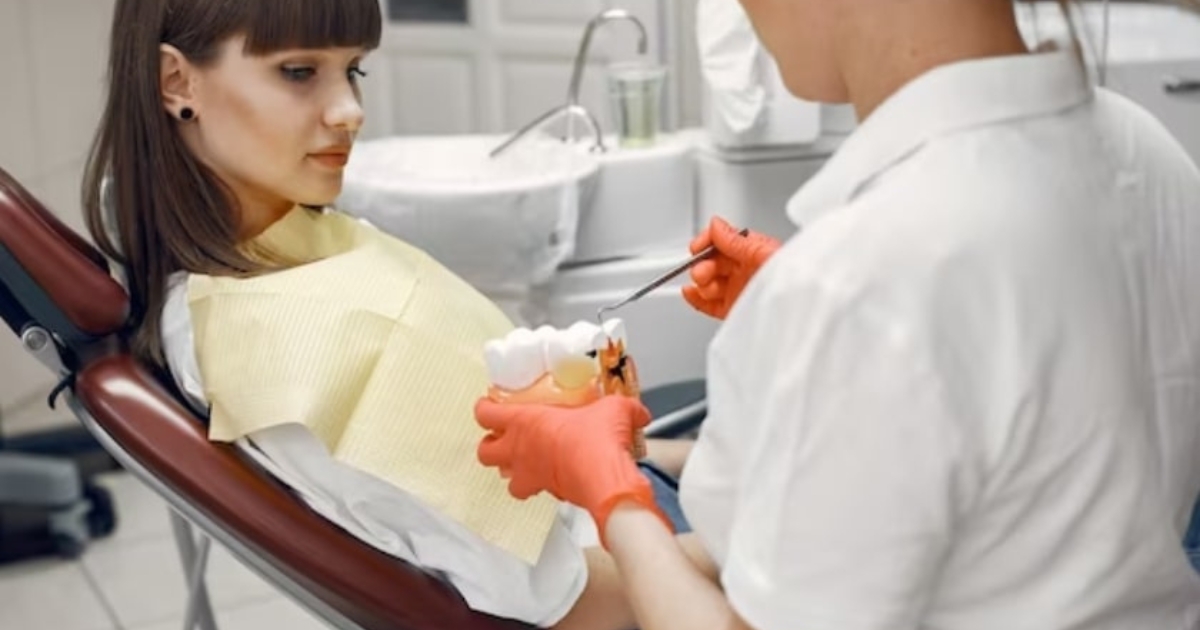San Jose, CA
Common Habits to Increase Chances of Needing a Root Canal


Did you know that nearly 15 million root canals are performed each year in the U.S.? This statistic highlights a common dental procedure that many people face. A root canal becomes necessary when the tooth’s pulp becomes infected or inflamed. This procedure saves the tooth and alleviates pain. Understanding what leads to this condition is crucial for maintaining dental health.
This blog will explore common habits that can increase the likelihood of needing a root canal. By identifying and changing these habits, you can protect your teeth and enjoy better oral health.
Understanding Root Canals
A root canal is a dental procedure that treats an infection at the center of a tooth. During the process, a dentist removes the infected pulp, cleans the inside of the tooth, and seals it to prevent further infection. This treatment can save a tooth that might otherwise need extraction.
Deep decay, cracks, or repeated dental procedures on the same tooth are common reasons for requiring a root canal. Sometimes, trauma from an injury can also cause damage.
You may need a root canal if you experience persistent pain, swelling, or sensitivity to hot or cold temperatures. Discoloration of the tooth is another indicator. Recognizing these signs early can improve treatment outcomes.
Common Habits That Increase Risk
A. Poor Oral Hygiene
Neglecting oral hygiene can significantly increase your risk of needing a root canal. Brushing twice a day and flossing daily are essential habits for maintaining dental health. When you fail to clean your teeth regularly, plaque builds up. Plaque is a sticky film of bacteria that can lead to cavities and gum disease. This neglect can result in deeper infections requiring root canals.
B. Sugary Diet
A diet high in sugar is another major contributor to tooth decay. When you consume sugary foods and drinks, the bacteria in your mouth feed on these sugars and produce acid. This acid erodes tooth enamel and leads to cavities. Common culprits include candies, soda, and baked goods. Reducing your sugar intake is crucial for protecting your teeth from decay.
C. Skipping Dental Checkups
Regular dental checkups play a vital role in preventing oral issues. Dentists can identify problems early before they require major treatment. Skipping these appointments can lead to undetected decay and infections that result in root canals. Aim for checkups every six months to keep your teeth healthy.
D. Grinding Teeth (Bruxism)
Grinding your teeth, also known as bruxism, can cause significant damage over time. Stress, misaligned teeth, or sleep disorders often trigger this habit. Grinding wears down enamel, increases sensitivity, and may lead to infections. Managing bruxism involves stress-reduction techniques, wearing a mouthguard at night, and addressing dental misalignments with your dentist.
E. Using Teeth as Tools
Using your teeth to open packages and bottles or perform other non-dental tasks can lead to cracks and chips. These damages can expose the pulp and increase the risk of infection. Instead of using your teeth as tools, opt for scissors or bottle openers. Protecting your teeth from unnecessary damage is essential for maintaining their health.
F. Smoking and Tobacco Use
Smoking and tobacco use have severe consequences for oral health. Tobacco products can lead to gum disease, which increases the likelihood of tooth decay. Additionally, smoking reduces blood flow to the gums, hindering healing and increasing infection risk. Quitting smoking can improve your overall oral health and reduce your chances of needing a root canal.
Prevention Tips
A. Maintain Good Oral Hygiene
Good oral hygiene is the foundation of dental health. Brush your teeth for two minutes twice a day using fluoride toothpaste. Also, floss daily to remove food particles and plaque between teeth. Rinse with an antibacterial mouthwash to further reduce bacteria.
B. Limit Sugar Intake
To protect your teeth, limit sugary snacks and drinks. Opt for healthier alternatives like fruits, vegetables, and nuts. Drink water or unsweetened beverages instead of soda. Reducing sugar helps prevent cavities and protects your enamel.
C. Schedule Regular Dental Visits
Regular dental visits are crucial for maintaining dental health. Aim to see your dentist every six months for checkups and cleanings. These visits allow for early detection of potential issues, preventing the need for more extensive treatment later.
D. Manage Stress to Reduce Teeth Grinding
Stress management can help reduce bruxism. Practice relaxation techniques such as deep breathing, meditation, or yoga. Regular exercise also helps alleviate stress. If you suspect bruxism is a problem, consult your dentist for appropriate solutions, such as a custom mouthguard.
E. Avoid Using Teeth for Non-Dental Tasks
Make it a habit to use appropriate tools instead of your teeth. Avoid using your teeth to open packages or bottles. Protect your teeth from damage by always having the right tools on hand.
F. Consider Quitting Smoking
If you smoke, consider quitting. Seek support from healthcare professionals or local cessation programs. Quitting smoking improves your overall health and significantly benefits your oral health.
When to See a Dentist?
Identifying Symptoms Early
Pay attention to your body’s signals. If you experience persistent tooth pain, swelling, or sensitivity, consult your dentist immediately. Early identification of these symptoms can lead to timely intervention.
Importance of Early Intervention
Addressing dental issues promptly can prevent the need for root canals. Ignoring problems can lead to more severe infections and complications. Regular visits and being proactive about any discomfort can save you from extensive procedures in the future.
Maintaining dental health requires attention to your habits. Poor oral hygiene, a sugary diet, skipping dental visits, and other habits can increase your risk of needing a root canal. By being mindful of these behaviors, you can protect your teeth and improve your overall health. Take action today to adopt healthier habits and prioritize your dental care. Remember, your smile deserves the best!



